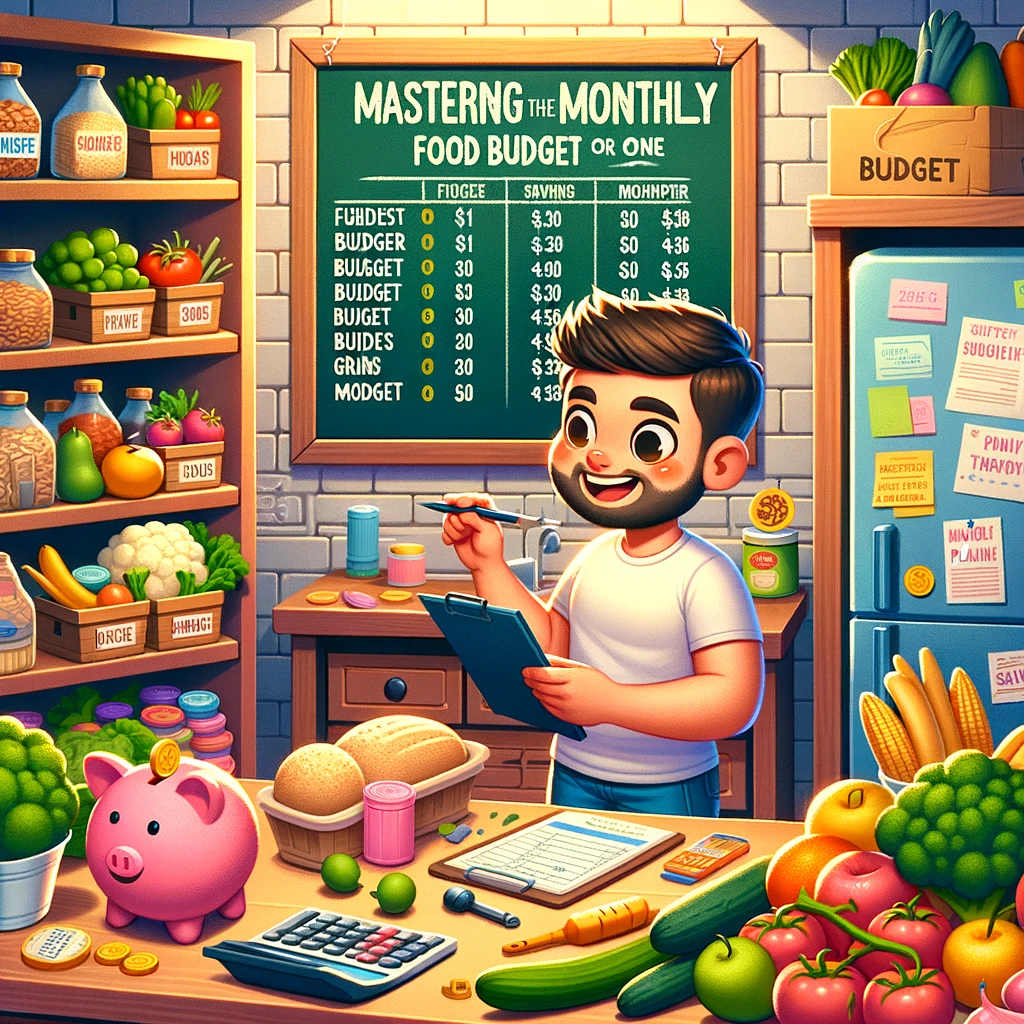Introduction
Navigating the world of personal finance can often seem like a daunting task, especially when it comes to managing your grocery expenses. For individuals living on their own, creating a monthly food budget for one is not just about saving money—it’s about making informed choices that align with both nutritional needs and fiscal responsibilities. This guide aims to demystify the process, providing practical advice to help you establish a grocery budget for a single person that promotes financial wellness and dietary balance.
Understanding the Importance of Food Budgeting
The importance of food budgeting cannot be overstated. It’s a crucial aspect of personal finance management that helps individuals avoid overspending, ensure they have enough for other expenses, and save for future goals. For a single person, managing a monthly grocery budget effectively means striking a balance between eating well and staying within financial limits.
Setting a Realistic Food Budget for 1
When determining a realistic food budget for one, it’s essential to consider your income, necessary expenses, and financial goals. A good grocery budget for one person typically allocates a portion of the net income towards food, ensuring that it covers nutritional needs without compromising other financial responsibilities. The key is to adjust this budget as needed, taking into account changes in income or dietary preferences.
Planning Your Monthly Grocery Budget for 1
To plan your monthly grocery budget for one, start by tracking your current food expenses. This will give you a baseline to work from and help identify areas where you can cut back or need to allocate more funds. Remember, the goal of a single person grocery budget is flexibility and adaptability—two crucial factors that allow for adjustments based on fluctuating food prices and personal circumstances.
Key Strategies for Managing Your Monthly Food Budget for 1
Effective management of your monthly food budget for 1 involves several strategies, from meal planning and smart shopping to leveraging discounts and prioritizing nutrient-dense foods. These tactics not only help stretch your dollar further but also ensure that your diet remains balanced and satisfying.
Meal Planning and Preparation
One of the most effective ways to control your grocery budget for one person is through meal planning. By deciding what you’ll eat in advance, you can buy only what you need, minimizing waste and avoiding impulsive purchases that can inflate your budget.
Smart Shopping Habits
Developing smart shopping habits is another key to success. This includes comparing prices, buying in bulk when it’s cost-effective, and choosing generic brands over name brands when possible. Staying flexible with your meal choices based on what’s on sale can also lead to significant savings.
Prioritizing Nutritional Value
A monthly food budget for 1 should also focus on nutritional value, ensuring that you’re getting the most bang for your buck in terms of health benefits. Incorporating a variety of fruits, vegetables, whole grains, and lean proteins into your diet can help you meet your nutritional needs without overspending.
The Benefits of a Well-Managed Monthly Food Budget
A well-managed monthly food budget for one person extends beyond mere financial savings. It promotes a healthier lifestyle, reduces stress associated with financial management, and can even become a fun challenge that enhances your cooking skills and creativity in the kitchen.
Conclusion: Embracing the Monthly Food Budget for 1
In conclusion, creating and sticking to a monthly food budget for one is a rewarding endeavor that can improve both your financial health and your diet. By understanding the importance of food budgeting, setting a realistic food budget, and employing key strategies for budget management, you can enjoy a balanced diet that supports your lifestyle and financial goals. Remember, the secret to a successful single person monthly food budget lies in mindful planning, smart shopping, and a commitment to your overall well-being.



